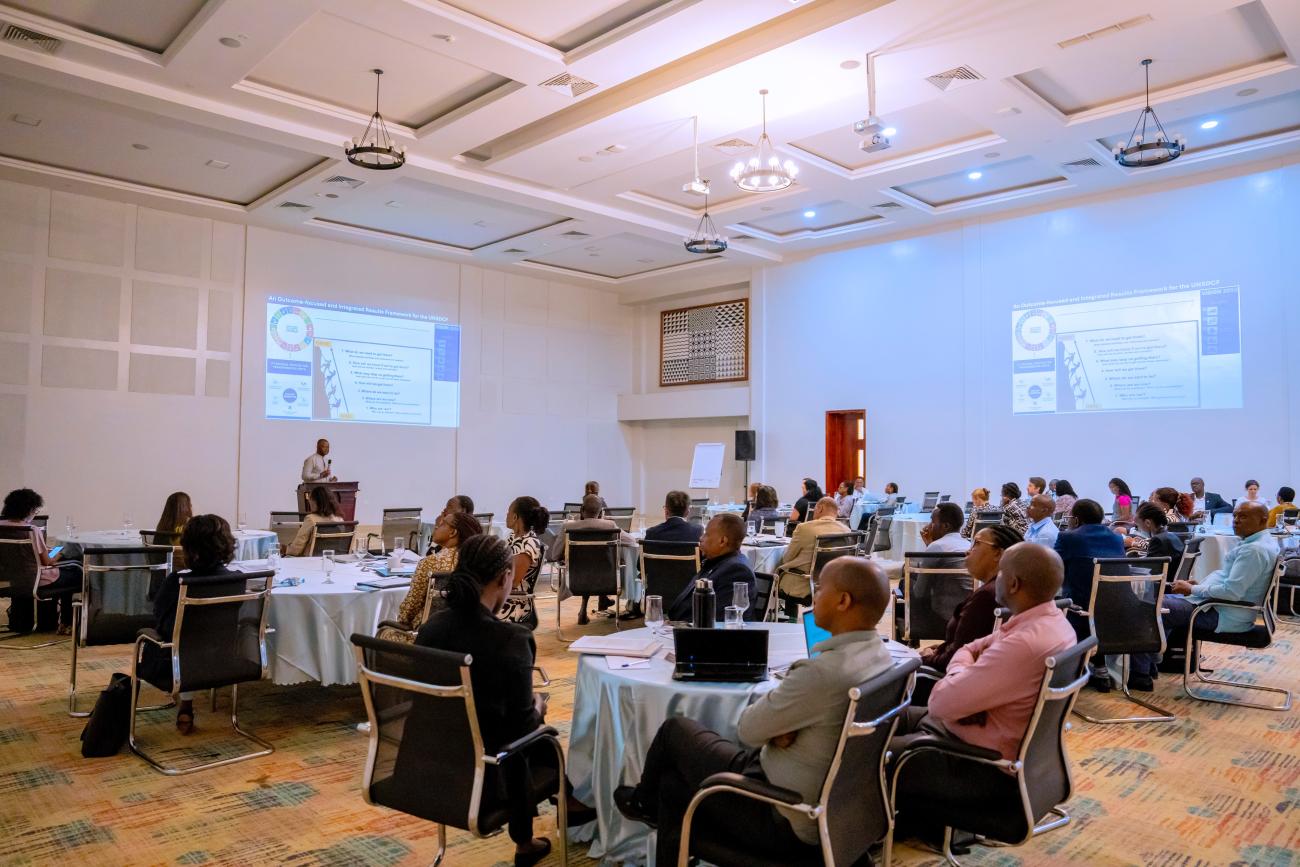For the past six months, the UN Country Team in Rwanda has been diligently working on developing the new United Nations Sustainable Development Cooperation Framework (UNSDCF) 2025-2029. This Framework is designed to guide the UN’s support for Rwanda’s national priorities, supporting the country achieve its goals in alignment with Agenda 2030.
“We’re doing something different and innovative this time,” said Ozonnia Ojielo, UN Resident Coordinator. “We’ve created a process to clearly define where the UN can make the most impact. It’s not just about programmes and projects; our role is broader—focusing on advocacy, convening, and bringing people together to support the Government in driving its strategic priorities. This new Framework will serve as a partnership document.”
The ongoing elaboration of the UNSDCF coincides with Rwanda’s recent approval of the 2nd National Strategy for Transformation (NST2, 2024-2029), a five-year plan aimed at transforming Rwanda into a prosperous, inclusive, and resilient nation. The strategy prioritizes job creation, export growth, quality education, reduced stunting, and enhanced public service delivery, setting the stage for Rwanda’s ambitious economic growth.
“Rwanda aims for sustainable, stable economic growth, with a target of at least 9.3% annually,” said Prime Minister Dr. Edouard Ngirente during his presentation of NST2 to Parliament.
To support this vision, the UN has been developing the new UNSDCF, led by the UN Resident Coordinator and the UN Country Team, with technical leadership from the Programme Management Team (PMT). Once validated, the UNSDCF will be the strategic tool to foster partnerships and collaboration, ensuring a coordinated approach to addressing key socio-economic challenges for the greatest impact on Rwanda’s development.
“Our approach is inclusive—we value every idea and expertise within the system,” said Mutinta Nseluke Hambayi, Deputy Country Director of WFP and Chair of the PMT. “I believe this new Cooperation Framework will be closely aligned with Rwanda’s National Strategy for Transformation.”
A major milestone in this process was the development of the Theory of Change (ToC). A Workshop on the formulation of the ToC was held in August, which identified key areas of focus, strategic areas of investments, and opportunities that will shape the UN’s work from 2025 to 2029. Equally critical is the ongoing formulation of the Results Framework which translates these insights into a practical plan for implementation, monitoring, and evaluation.
The Results Framework for the UNSDCF ensures clear accountability by tracking progress towards agreed development goals. It provides a structured approach to measuring impact, aligning efforts with national priorities, and enhancing transparency. The new UN Sustainable Development Cooperation Framework will cover the period from 2025 to 2029.


















